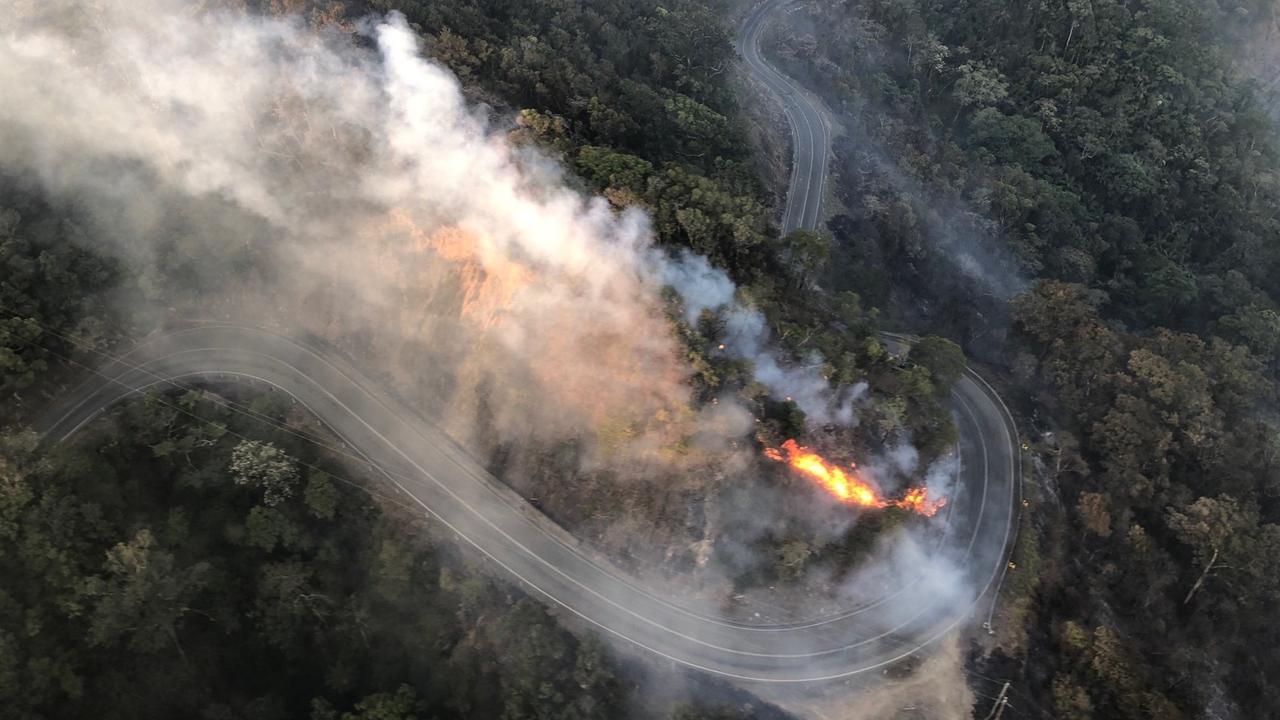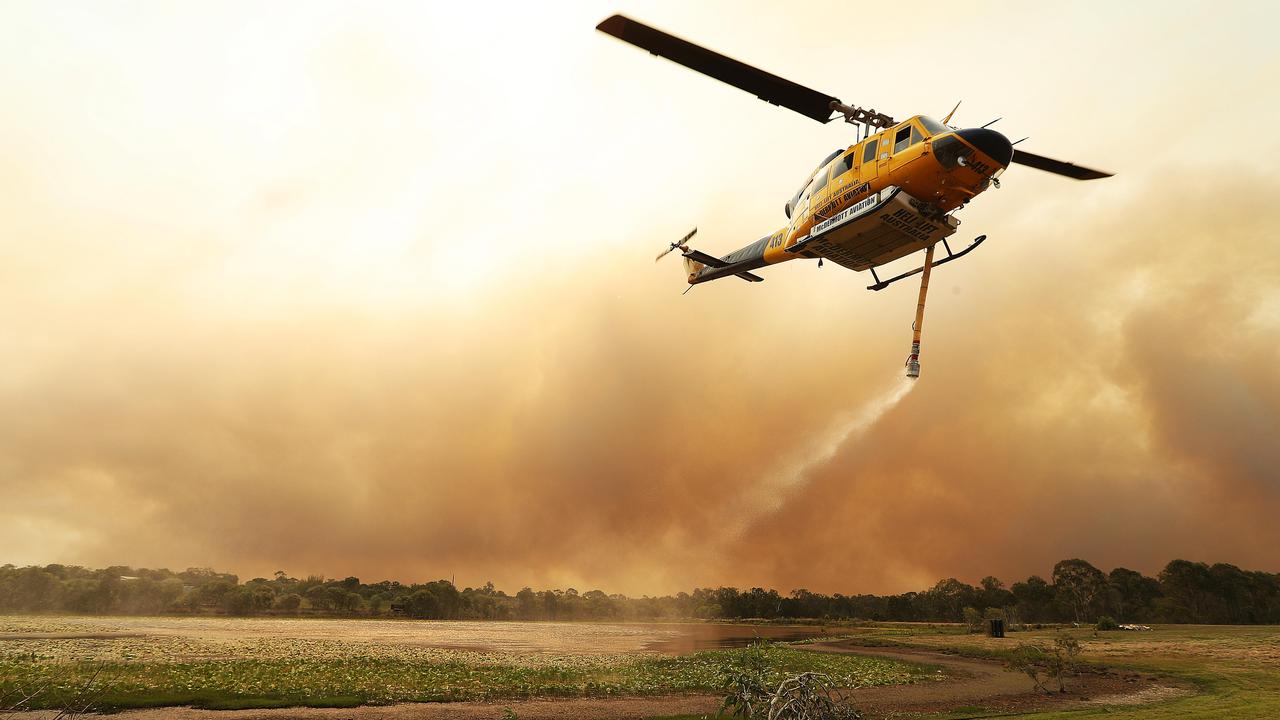Disaster advice from Ian Stewart: help yourself
THE man who managed Queensland's summer of disasters has warned that emergency services cannot respond to every call for assistance.

THE man who managed Queensland's summer of flood and cyclone disasters has warned that emergency services cannot respond to every call for assistance, and able-bodied people will be the last to be helped.
Declaring that it is a "citizen's responsibility to be a first responder", Queensland Police Commissioner Ian Stewart said emergency services would be too busy with the elderly and disabled to reach those capable of fending for themselves.
In addition to taking responsibility for their own safety, people needed to look after vulnerable neighbours, Mr Stewart told The Australian.
"It has a parallel when you think about it in the health system, where we ask people with the capacity to do so to take out private health insurance and to make preparations for their own long-term health care," he said. "In a responder situation . . . as technology gets better we will be able to discriminate between those who can look after themselves or should be able to, and those who are really in a less fortunate situation.
"So we will be concentrating on the less fortunate ones, and those who are better placed, we will ask them to do more to look after themselves."
Mr Stewart issued his call on the second anniversary of the 2011 flooding of Brisbane that damaged nearly 30,000 homes and business premises, and as heatwave conditions continued to tax rural fire services battling outbreaks in NSW, southeast Queensland and regional South Australia. Cooler weather in Victoria, southern NSW and Tasmania yesterday eased the principal bushfire emergencies, at least temporarily.
The head of the peak Australasian Fire and Emergency Service Authorities Council, Stuart Ellis, questioned whether Mr Stewart's proposal for everyone to become an emergency first responder should apply in bushfires.
"I do think everyone has an obligation, but that may have a slightly different context with fire," he said. "We are not asking people to put themselves in harm's way to fight the fire, we are asking them to take responsibility for their own safety."
Mr Stewart ran the disaster response to the Toowoomba and Lockyer flash floods that killed 22 people on January 10, 2011, before Ipswich and Brisbane went under water and category 5 Cyclone Yasi slammed into north Queensland on February 3 to cap off Queensland's "summer of sorrow".
While emergency services would do what they could to reach people needing help, Mr Stewart said there was a limit, and at the height of the "inland tsunami" west of Brisbane and during Cyclone Yasi he had bluntly warned that it was too dangerous to send out crews.
"Obviously, we have an obligation to keep them safe as well in their role, and at that point in the equation the whole community becomes first responders," he said. "They should be in a situation where they have informed themselves and can take the necessary actions to keep themselves and their immediate loved ones safe.
"Then on top of that, it is certainly my view - and I think the view of most emergency responders - (that) individuals must be capable of then supporting neighbours and other people in their immediate area of responsibility."
Mr Stewart said he expected people would be shocked to hear from the emergency services "that you are on your own, that there is no one coming".
Technology was available or on its way to allow triple-0 and other emergency call centres to identify people incapable of looking after themselves.
"Increasingly, as the technology gets smarter and better, as we are able to know where these people are, emergency services' resources and capacity will get tied up looking after these people," he said. "And what we will be asking able-bodied members of the community and those who have capacity to do, is look after their families and their neighbours. We will ask them to do that because our capacity will be diminished."
He said the elderly, and people who were ill, physically disabled or had an impairment that made them unable "to comprehend the reality of the situation they faced" would be the priority.
"The way around it - and this really does come down to a citizen's responsibility to be a first responder - is that some of these (incapacitated) people could also be helped by their neighbours and by others in the community," he said. "To me, that is just as valuable as the ability for emergency services to deal with it. But in that case, we need to know . . . so we are not racing around to go and help Mrs Smith, say, when Mrs Smith is already being looked after by her son or by the neighbour from down the road. Our system needs to become more and more sophisticated to deal with that, as well."
Mr Stewart's comments will fuel the debate about where the responsibility of the emergency services ends and that of the community begins in dealing with bushfires, floods, cyclones, storms and other natural disasters.
In an assessment of the 2009 Black Saturday bushfires outside Melbourne, Victorian disaster specialists John Handmer and Saffron O'Neill last year argued that the risk was "disproportionately loaded on to householders" when authorities failed to change their standard advice to the public or operating procedures for voluntary firefighters to take into account the catastrophic conditions.
The researchers highlighted how 44 per cent of the 173 deaths on Black Saturday involved people aged 70 or over, under 12 or those who had a disability.
But Mr Ellis, a former chief executive of South Australia's Country Fire Service, said the onus should be a "bit sharper" than that of shared responsibility between communities and the emergency services.
"I would refer to it as mutual obligation," he said. "Shared responsibility sounds like a sort of a nice handshake . . . when there is a mutual obligation for members of the public to be responsible for their own actions and to make informed decisions.
"The responsibility of the agency is to get them that information . . . but they have a mutual obligation to make informed decisions and not just be reliant on the fire services or the emergency services to roll up and save the day."
Brisbane Lord Mayor Graham Quirk revealed yesterday that most of the civic infrastructure damaged in the 2011 flood had been repaired, including 465km of stormwater drains, 13sq km of footpath and 17 bridges.
"When the floodwaters receded two years ago we were staring down the barrel of a $400 million damage bill and it was certainly a daunting task," he said.



